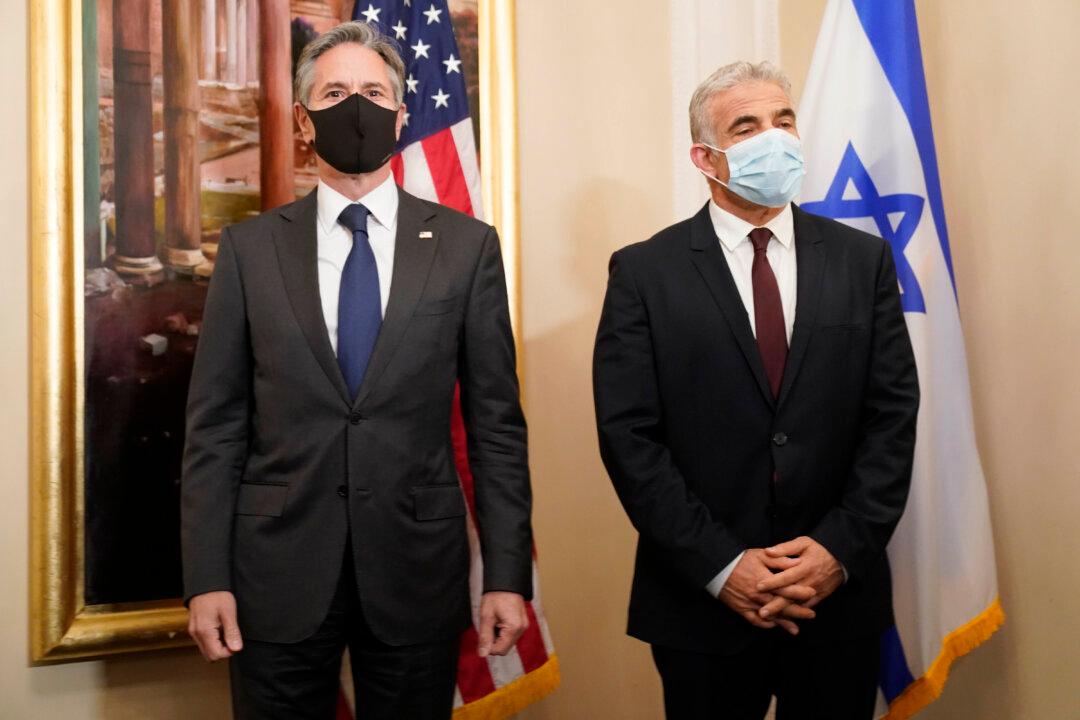ROME—Israel has serious reservations about the revival of the Iran nuclear deal, new Israeli Foreign Minister Yair Lapid told his U.S. counterpart.
In their first face-to-face meeting since Israel’s new government was sworn in two weeks ago, U.S. Secretary of State Antony Blinken and Lapid had a very positive and warm discussion, according to U.S. officials.





